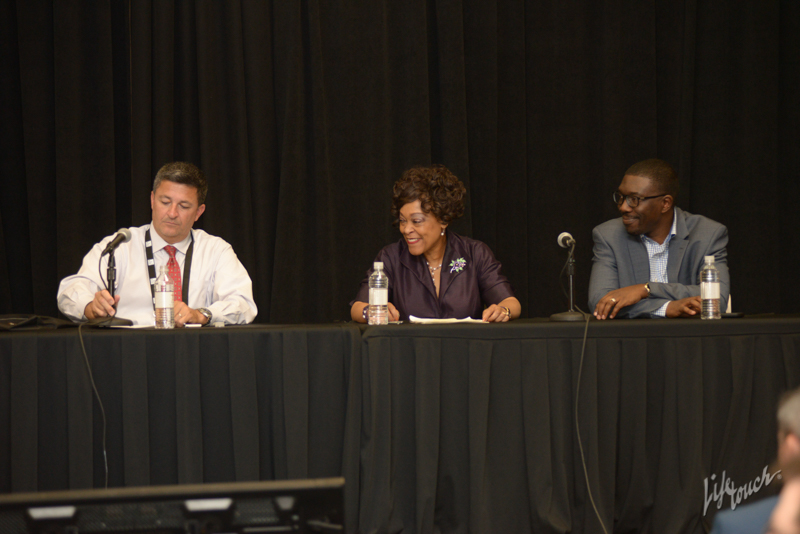School administrators should be like coffee beans when faced with boiling water.
Unlike an egg that becomes hard or pasta that goes soft, a coffee bean remains the same.
Similarly, when faced with challenges or adversity in their school districts — the boiling water in this analogy— school administrators should emulate what they believe is best for their district. Professional development for all staff, from principals to teachers to bus drivers to custodians, paves the way to this sentiment, which was expressed at a Thursday morning Thought Leader session at the AASA national conference in New Orleans.
Three self-acknowledged “coffee bean” superintendents — Robert Avossa of Palm Beach County, Fla.; Sybil Knight-Burney of Harrisburg, Pa.; and Shawn Joseph of Nashville, Tenn. – fleshed out that perspective during the hour-long session before colleagues.
These superintendents are part of AASA’s Superintendent Leadership for Innovative Professional Development Assessment and Redesign Initiative, which is supported by the Bill and Melinda Gates Foundation. Bryan Joffe, project director at AASA, moderated the session.
Joffe explained five key elements in professional development redesign: collaborative time, coherent and aligned curricula, feedback systems, school and teacher leaders as models and measuring quality and impact.
“Oftentimes as superintendent you hear what kids don’t have in your district, “ Knight-Burney said. “Change the script. If someone brings in a problem, they need to bring in a solution as well.”
The central premise of the professional development work is that if teaching improves, student learning improves.
“Superintendents are more than ever in desperate need for talent,” said Avossa. “Professional development is about investing in people.”
“There needs to be systems in place,” said Joseph, where school district staff try new techniques, reflect on those attempts and try again.
The panelists addressed a couple challenges.
The first was how to enhance professional development for aspiring principals and superintendents at the principal and teacher level.
Knight-Burney explained when she became superintendent she inherited discipline managers rather than instructional leaders. She wanted to engage her staff in the power of learning. Her district formed an aspiring urban leader academy to show those considering leadership posts what they can realistically expect.
A second challenge was addressing equity. In all three districts, the average teacher was a white middle-aged woman, which didn’t reflect the student population. The key for all the superintendents on the panel was to embrace the socio-economic and equity discussion in a constructive manner.
“We all have bias, intentional or not,” Avossa said. “It’s about embracing these class conversations without placing blame [on your staff].”
“It’s about having these conversations with students and with the community,” Knight-Burney stated. “Don’t be afraid to talk about inequities.”
“It’s important to ask ‘Do we expect enough from our minority, ELL and special ed students?” Joseph added. “Are we having enough conversations around it?”
(By Rebecca Shaw, a reporter for Conference Daily Online)


